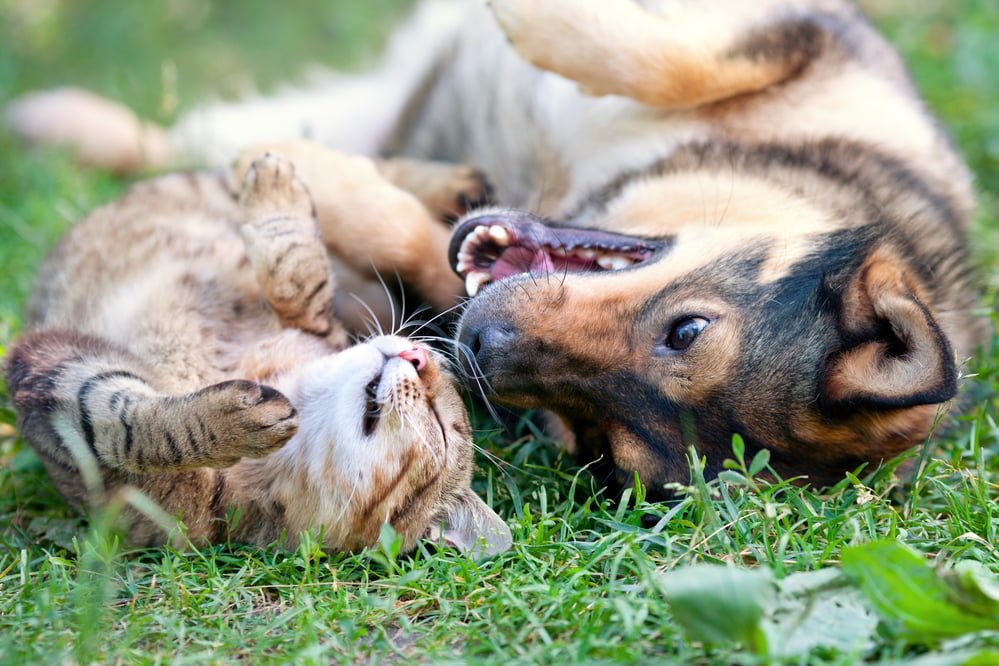
When you visit your local garden center, be on the lookout for pet-friendly plants. Veterinary experts suggest printing out a list of safe plants that grow in your region, and taking it with you when you buy outdoor plants. (Take a look at this extensive list from the ASPCA) When in doubt, use your smartphone right from the store to look up a specific plant that catches your eye. As for what to avoid, here are few plants to steer clear of, if you want to keep your fuzzy buddy safe.
Flowers provide a stunning centerpiece to any garden. Safe gardening for your pet doesn’t mean you have to forego the blossoms, but do remember that a few will not work. Tiger lilies, day lilies and Easter lilies are extremely toxic to cats, and if they eat just a few leaves or petals, kidney failure can follow.
For dogs, any plant from the wolfsbane family (also known as aconitum) is highly toxic, as are oleanders. Other flowering dangers include amaryllises, begonias, cyclamens, gladiolas, hostas, daffodils and morning glories.
Because ’tis almost the season, remember that poinsettias also can be harmful to pets. Flowering shrubs can be a problem too. If you’re planting azaleas and lantanas, put them where your pet can’t get to them. These shrubs can cause some gastrointestinal distress to your pooch. Plants like sago palm can also cause a dog to suffer from liver disease that can be fatal.
Beyond Plants and Flowers
Many dogs enjoy digging in the garden, which can be dangerous if you plant bulbs. If Fido digs up daffodil or tulip bulbs, it can cause vomiting and severe diarrhea.
Think also about the products you use for planting and maintenance. If you use fertilizers, supplements or pesticides, be sure to carefully read the labels to see if they are safe for your pet. Many fertilizers can cause irritation to your pet’s stomach, and some are extremely toxic. As for pesticides, always use extreme care around pets and children. Anything that can kill an insect can probably be harmful to pets and humans as well.
Keep supplements such as blood meal or bone meal away from your pet too. After all, dogs love bones, so they’re drawn to the smell of these products. If ingested, blood or bone meal can cause vomiting, diarrhea and even pancreatitis, which is potentially fatal.
No matter how careful you are, it’s always best to supervise your pets when they are in the garden. This will keep them safe and ensure that your plants stay intact and in the ground, where they belong!
Planning a beautiful yard that is safe for your whole family isn’t difficult. At Millcreek Gardens in Salt Lake City, we can help you select the perfect plants, trees and shrubs for your yard or garden, as well as all the garden tools and accessories you need. Stop in and see us this weekend, and ask our friendly associates for help in selecting the perfect pet-safe outdoor plants.


